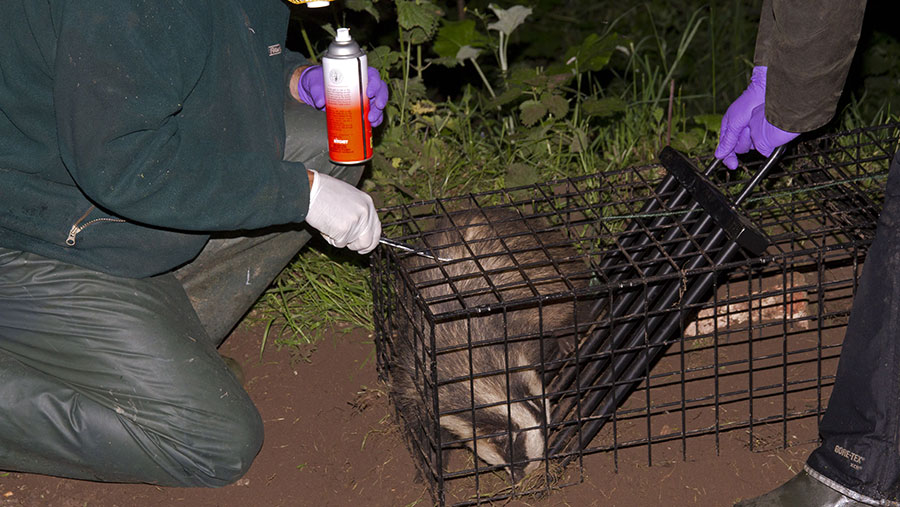Defra reopens badger vaccination scheme in England
 © FLPA/John Hawkins/REX-Shutterstock
© FLPA/John Hawkins/REX-Shutterstock Defra is inviting applications from organisations for TB badger vaccination programmes in counties on the edge of the disease.
The government department announced on Monday (11 September) it had relaunched its Badger Edge Vaccination Scheme (BEVS), which had been suspended due to a global shortage of the BCG vaccine.
Vaccination programmes are being invited to apply for a share of £700,000 over four years, for 50% of the programme costs for projects due to start in spring 2018.
See also: Badger cull extended to Cheshire and Wiltshire
Badger vaccination is part of Defra’s 25-year strategy to eradicate bovine TB in England, which also includes badger culling in areas where the disease is endemic.
Defra has also announced that culling will be extended to 11 new areas this autumn, bringing the total number of cull zones to 21 in England.
Advisory service
In addition, farm minister George Eustice announced a new TB advisory service to offer practical advice to farmers to help protect their herds and manage the impacts of a TB breakdown.
Farming advice on biosecurity and risk-based trading will be available both on-farm, by phone and email to farmers in high-risk and edge areas from next month. Farmers can register their interest by emailing info@tbas.org.uk.
Mr Eustice said: “We have a clear plan to eradicate the disease over the next 20 years and this year we are restarting the government-backed BEVS to stop the disease spreading to new areas.
See also: Photos: How to badger-proof your farm
“While our eventual aim is to eradicate the disease completely, farmers are facing the reality of TB on their farms every day, which is why we are also launching a new TB advisory service to offer advice to all farmers on limiting on-farm disease risk.”
Nationwide service
Welcoming the service, the NFU’s deputy president Minette Batters said it would provide a valuable role in tackling the disease and the NFU would be seeking an early meeting with the company running it to understand what it will offer farmers.
She added the NFU wanted to ensure the experience gained from the South West TB Farm Advisory Service is taken forward and similar guidance is offered.
“The NFU has been lobbying the government to provide a service across the whole country as the testing and surveillance regime can be challenging to all cattle farmers, including those in the low-risk area,” she said.
